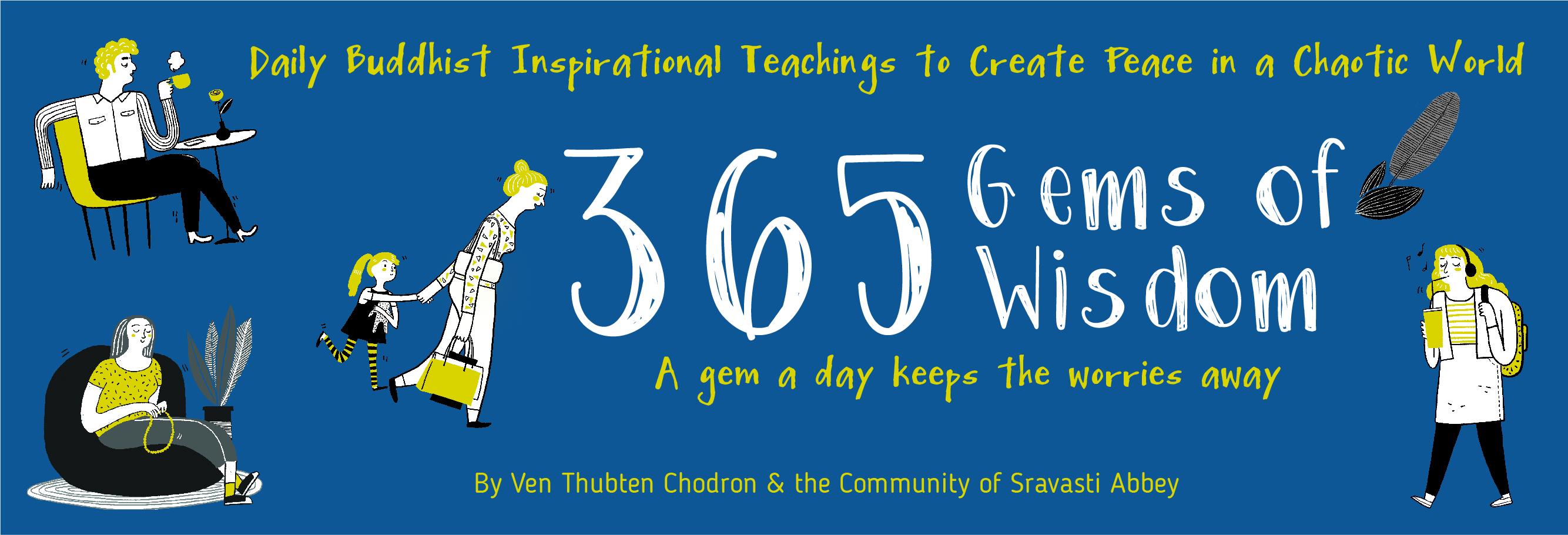December 7 : Buddhist Precepts Regarding Food
The Buddha was completely against harsh ascetic practices like fasting. He had tried them himself during the six years before his awakening and had seen that an emaciated and starving body affected the clarity of the mind.
One kind of asceticism the Buddha did support was the monastic precept of not eating after midday and before the dawn of the next day. There are several reasons behind this precept, although not all Buddhist traditions follow it literally. The first reason is to minimise time spent walking back and forth to the village to gather alms. The second reason is out of consideration for the lay people who had to cook the food for the sangha. The third reason is to keep the mind alert for meditation, since eating heavy meals in the evening can make your mind dull and groggy. Lastly, the Buddha proscribed going on alms rounds at night because some monastics had fallen into cesspools or stepped in faeces in the dark, and they sometimes scared people who thought they were ghosts. This practice worked well in ancient India, where the food had a lot of substance and the Buddha did not prohibit eating meat. Also, the time between noon and the following dawn was not that long since India is near the equator.
Some things had to be modified when Buddhism moved to different cultures, climates and living situations. As vegetarians, Chinese Mahayana Buddhists felt that it was healthier to have three meals a day and called their evening meal “medicine meal”, though we should actually see all our food as medicine. A lot of the Chinese monastics also established monasteries in the mountains to avoid the politics of the cities, so they had to grow their own food. There are not a lot of fruits and vegetables in Tibet, so monastics there had the habit of eating lots of meat and dairy. His Holiness and some others have been working very hard to diminish the amount of meat eaten in the monasteries in India, though eating habits die hard. The Tibetan version of the Vinaya has some exceptions about eating after midday for those who are ill, under-nourished, those who have been traveling, and those who were caught in inclement weather.
Nowadays in America, most of us do not go on alms rounds, though some monasteries have organised alms rounds where they notified their supporters in advance (one even had to get a parade permit from the city council). It is ultimately up to each individual to decide how they keep the precepts about eating. I think it is good to be strict when you first take them, but if you run into health difficulties you can request the Buddha’s permission to eat after noon and see the food as medicine.
“365 Gems of Wisdom” e-book is out now!

